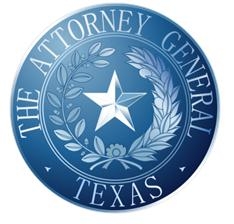by: David Robbins
August 17, 2016
On August 15, the Texas Attorney General issued an opinion which found that a county judge’s practice of opening his daily courtroom proceedings with prayer is constitutional. The opinion was issued in response to a request by State Commission on Judicial Conduct (“Commission”), as well as the Lieutenant Governor. It misconstrues the law and undoubtedly will lead to religious coercion in the Judge’s courtroom.
Wayne L. Mack, a Justice of Peace in Montgomery County, established a volunteer chaplain program that invites “’all religious leaders of any faith in [his county] to participate.’” On a daily basis, a volunteer chaplain is “invited to ‘give a brief prayer during the opening ceremonies’ of the Justice of the Peace’s court proceedings.” Furthermore, “‘[n]o guidance is given about the tone or content of the prayers.’”
In opposing this practice, the Commission referred the Attorney General to a U.S. Court of Appeals for the Fourth Circuit decision invalidating opening courtroom prayers. Failing to cite one decision to contrary, the Attorney General opinion instead erroneously relies on U.S. Supreme Court legislative prayer decisions to validate the courtroom prayer practice.
These legislative prayer decisions, however, are a narrow exception to the First Amendment’s Establishment Clause. They are based on a long tradition of opening prayer before state legislatures, but there is no such tradition in American courtrooms. Indeed, the Court of Appeals decision cited by the Commission rejected an equivalence between legislative and courtroom prayer because "’for the judge to start each day with a prayer is to inject religion into the judicial process and destroy the appearance of neutrality.’” And because litigants are required to be present in court, the risk of religious coercion is much greater than in the context of a legislative body. Furthermore, even under the Supreme Court’s most recent and overly broad legislative prayer decision, a prayer practice cannot result in a ““pattern of prayers that over time denigrate, proselytize, or betray impermissible government purpose.” No such limitation exists in Judge Mack’s courtroom.
According to the Attorney General Opinion, persons who are required to appear before Judge Mack will not be subject religious coercion because “ ‘the bailiff provides an opportunity for individuals to leave the courtroom during the prayer and explains that participation in the prayer will have no effect on the decisions of the court. ‘”
That policy is grossly unrealistic and is of little comfort to prospective litigants before Judge Mack. Rather, as correctly articulated by the Commission in its request for an Attorney General opinion on this issue:
Objectively, it would appear axiomatic that anyone who would dare to leave the courtroom upon this announcement and return after the prayer when the judge is present is being placed in an untenable position. By exiting and then returning to the courtroom, the litigant runs the risk that he or she will possibly be noticed by the judge as having left the courtroom during the prayer and held up to ridicule, denigrated, or retaliated against by the judge or by the community for implying a rejection of the judge's Christian religious beliefs.
At the same time, those who remain silent and choose to stay in the courtroom may be subjected to a court-sanctioned prayer and governmental endorsement of a religious belief other than their own, in violation of the Establishment Clause. The United States Supreme Court specifically addressed the dangers of this kind of endorsement, which "sends a message to nonadherents that they are outsiders, not full members of the political community, and an accompanying message to adherents that they are insiders, favored members of the political community."
In our nation’s courts, the Constitution demands that all persons be treated equally before the law regardless their faith. The Attorney General’s approval of this courtroom prayer practice threatens to undermine this critical principle. This unfair and exclusionary practice endorses and coerces religion in clear violation of the Establishment Clause. It should be struck down by a federal or state court.










